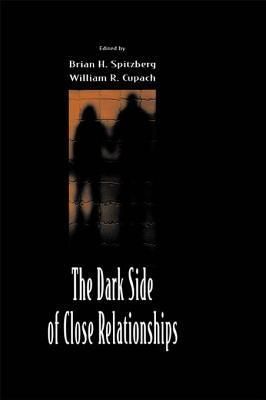
The Dark Side of Close Relationships
This collection of essays represents a follow-up to the editors' 1994 publication, The Dark Side of Interpersonal Communication. In the preface to that collection of essays, they argued that "To fully understand how people function effectively requires us to consider how individuals cope with social interaction that is difficult, problematic, challenging, distressing, and disruptive." In this companion volume, the focus expands from social interaction to close relationships. Aside from the inherent need to investigate the bad as well as the good of interpersonal relationships, the editors and their colleagues simply find the dark side metaphor to be intellectually arousing. It stimulates investigation of important yet often neglected phenomena, and it especially encourages consideration of the hidden and forbidden, and the paradoxical and ironic elements of human relating. This volume assembles the cutting-edge work of first rate scholars from the ranks of communication, psychology, sociology, and cognate disciplines. As in the previous text, the subject matter and stylistic approaches are diverse, reflecting the broad and interdisciplinary domain that is the dark side of human affairs. The selection of topics is somewhat selective, reflecting only a sample of emerging scholarship in the interdisciplinary study of relationships. These internationally recognized scholars examine various topics related to the dark side, including fatal attractions, jealousy and envy, misunderstanding, gossip, conflict, codependence, sexual coercion, stalking, relationship termination, unrequited love, and mental health problems in relationships. Some chapters present original data and models, whereas others reconfigure the way in which the understandings of relationships can be better understood. In addition, the bookend chapters examine the ideology, nature, and problems of dark side scholarship. Collectively, the scholarly journeys made in this volume are intended to illustrate the complexities--both moral and functional--involved in close relationship processes. The intent is neither to valorize nor demonize the darker aspects of close relationships, but rather to emphasize their importance to the day-to-day "doing" of relationships. Only by accepting such processes as integral to relationships can their role be fully understood.